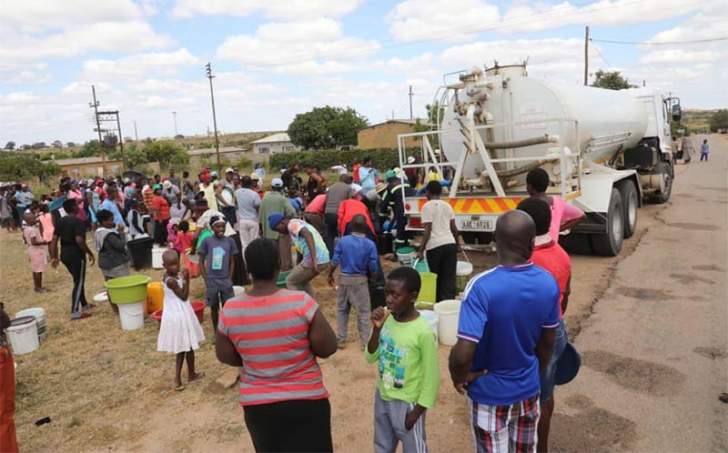The City of Bulawayo is grappling with severe water shortages, with only one water bowser currently operational to supply residents during the ongoing dry spell.
The residents are currently experiencing a 120-hour shedding schedule, where they only get water two days a week.
To address these challenges, the city is distributing water through bowsers to water kiosks located near residential areas.
However, the effectiveness of this strategy is hampered by the limited number of functional bowsers. Council minutes reveal that out of seven bowsers, only one is currently operational.
The city fathers have since ordered the engineering department to issue detailed reports periodically, stating how much progress has been made especially in repairing dysfunctional systems at water sources.
According to the council minutes, the city has a complement of seven bowsers and currently only one is functional.
The minutes further state that, periodically, the city was hiring bowsers to cater specifically for supplying high-lying areas and funerals.
The city also has 419 boreholes and 33 water kiosks.
Ward 5 Councilor, Dumisani Nkomo, said the engineering department must give detailed reports with progress being made in terms of addressing the water crisis.
“The engineering department must give us detailed reports on the movements being made in terms of improving the water crisis. The previous report stated that the city has seven bowsers but only one is working. The current report still shows the same. It was just a copy and paste. We want to know what is being done to address this. We must informed fully of the movements being made not to just read the same reports all the time,” Cllr Nkomo said.
Ward 14 Cllr Dumisani Netha, also noted that the department must give people information on what is being done on the ground.
Cllr Netha complained that most of the water kiosks in his ward were not working and the residents were not getting enough water supply from the bowsers.
“The most important thing right now is the repairing of boreholes because we don’t have water. We need the compliment of these boreholes and quick repairs should they break down. Water kiosks are also there but most of them, especially in my ward are now dysfunctional,” he said.
“These were usually filled in by bowsers but none of that is happening right now because they are not working. We have higher areas where there is no water. We need at least four to five. These should concentrate on higher lying areas so that residents there can get water.”
Ward 25 Cllr, Alex Ndlovu, also noted that a lot of issues had been reported about equipment that is broken down at various water supply sites but no feedback had been provided as to the progress being made to restore normal operations.
“We can agree that by this time our supplies in terms of inflows into the dams would have improved but it appears that we have not been so lucky. But I think what should concern us as the council and residents of the city is water augmentation strategies,” Cllr Ndlovu said.
“Yes we have heard the plans but people want to hear what exactly is happening on the ground. We have heard about the duplication of the insiza pipeline but what progress has been made? We have heard about the booster pumps for Umzingwane and Mtshabezi, we want to know what progress is happening on the ground with regards to capacitating those pumps.”
Cllr Ndlovu added: “The concern right now is augmenting the supplies for the city. Also with regards to the Nyamandlovu Acquifer, it was said that the boreholes there are down and out and there were several efforts to try and rehabilitate and make them functional again. We want to know what progress is there on the ground. The concern of the council and all stakeholders is to know what is happening to alleviate the water challenges.”
Ward 3 Cllr, Mxolisi Mahlangu, raised concerns that the city should concentrate more on permanent solutions to the water crisis instead of mitigatory factors, noting that the water supplied through water bowsers may be contaminated.
“We should not be leaning on mitigatory factors just because we have a challenge with water. We should not spend resources pushing for more water bowsers and kiosks. We forget to think of the cleanliness of the same water that gets transferred from the sources to the bowsers then to the kiosks and to the people. Water is very delicate. What is the level of contamination? Have we considered that?” Cllr Mahlangu said.

